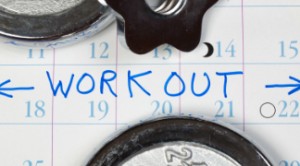Anxiety
 Yocheved* came to me last year complaining of sleeping issues along with restlessness while awake. She was having problems socially and was often irritable. After ruling out sleep apnea as a potential cause (overweight people are prone to that), I sent her for psychiatric evaluation. The diagnosis was Generalized Anxiety Disorder. Generalized anxiety disorder (GAD) is a common anxiety disorder that involves chronic worrying, nervousness, and tension. Anxiety issues are the most common types of mental illness in Western countries. Generalized anxiety disorder affects up to 16% of adults (Clow & Edmunds 2014). While some anxiety is considered normal; when it is excessive to the point where it negatively affects a person’s daily life, it becomes a disorder.
Yocheved* came to me last year complaining of sleeping issues along with restlessness while awake. She was having problems socially and was often irritable. After ruling out sleep apnea as a potential cause (overweight people are prone to that), I sent her for psychiatric evaluation. The diagnosis was Generalized Anxiety Disorder. Generalized anxiety disorder (GAD) is a common anxiety disorder that involves chronic worrying, nervousness, and tension. Anxiety issues are the most common types of mental illness in Western countries. Generalized anxiety disorder affects up to 16% of adults (Clow & Edmunds 2014). While some anxiety is considered normal; when it is excessive to the point where it negatively affects a person’s daily life, it becomes a disorder.
Some of the signs and symptoms are:
- feelings of worry
- tension
- jumpiness
- breathlessness
- dizziness
- sweating
- pounding heart
- numbness
- tingling sensations
Depression
Leah recently saw me in regard to a large amount of weight gain following a life altering event. Although her main reason for coming in was weight loss, it didn’t take long for us to begin discussing her feelings. She was clearly in a state of mild depression and was resistant to my suggestion of getting help from a psychologist.
Varieties of depression include psychotic depression, postpartum depression and even seasonal affective disorder, sometimes referred to as SAD. Major depressive disorder affects about 6.7% of U.S. adults (NIMH 2014a). About 11% of youth in America have a depressive disorder by age 18 (NIMH 2014b). Signs and symptoms of depression include the following:
- persistent sad mood or “empty” feelings
- feelings of hopelessness or pessimism
- loss of interest in most things
- feelings of guilt
- fatigue and low energy
- concentration problems, forgetfulness, inability to make decisions
- sleep problems—insomnia, early-morning wakefulness or excessive sleeping
- suicidal thoughts or suicide attempts
- overeating or loss of appetite
- aches or pains, headaches, cramps or digestive problems that do not ease even with treatment
I suggested to Leah that until she is ready for further help, we build an exercise program for her that will bring her to an intense level of exercise in 5-6 weeks’ time. Yocheved’s psychiatrist had already instructed her to begin a serious exercise program under my direction.
Both Yocheved and Leah benefited greatly from their exercise. Yocheved was able to reduce her dosage of medication while Leah ended up off their medications after a short amount of time. Why were both of these ladies helped by exercise and how effective is it really?
Experts offer multiple reasons why exercise positively impacts mental health; most agree it’s likely a combination of factors. Better circulation and reduced inflammation, boosts in psychological outlook, exposure to positive environmental factors, and behavioral shifts are all “side effects” of exercise that enhance mental health. According to the science, exercise may improve mental health in the following ways:
- By enhancing physiological health. “Physical activity benefits overall brain health by reducing peripheral risk factors for poor mental health—such as inflammation, diabetes, hypertension and cardiovascular disease—and by increasing blood flow and associated delivery of nutrients and energy,” says Angela Clow, PhD, professor in the department of psychology at the University of Westminster, London, and coeditor of Physical Activity and Mental Health. Depression and other mental ailments are associated with low physical activity; being more physically active reduces mental illness risks (Cooney et al. 2013).
- By raising tolerance for emotional stress. Since exercise is stressful, regular exercise increases a person’s resilience toward other forms of physical and emotional stress. Having more physical and emotional strength—from consistent fitness training—seems to help people adapt better when tough situations occur (Otto & Smits 2011).
- By increasing familiarity with physical stress. By exercising regularly, people can learn to control their experience of physiological stress—like an elevated heart rate or sweating—and these symptoms can become less frightening.
- By boosting self-efficacy. People who master a new skill improve self-efficacy, which subsequently leads to higher self-esteem. Learning how to exercise is an example of a skill that increases self-efficacy. High self-efficacy predicts well-being, while low self-esteem is associated with mental illness (Clow & Edmunds 2014).
- By fostering social contact. Social interactions can improve mood. Exercise frequently occurs together with others or with friend and family encouragement. This support boosts mood (Cooney et al. 2013).
- By increasing exposure to the outdoors, sunlight and green environments. Engaging in “green exercise” (outdoors) or spending time enjoying nature helps to lift mood. Other studies show that exposure to sunlight, even on darker days, can raise neurotransmitter levels and elevate mood (Young 2007).
- By diverting negative thinking. People with depression or anxiety often get stuck in negative thought cycles. Exercise, especially when mindful, may be a diversion from self- rumination, focusing thoughts away from negative inner concerns toward engagement with the present and with pleasurable experiences (Otto & Smits 2011).
- By encouraging engagement instead of avoidance. Focusing on exercise pursuits provides value. Creating a structured program directs focus on the value of activity, rather than withdrawal, and teaches persistence. This lesson in engagement, in spite of escape urges, can help people with anxiety to overcome avoidance in other life areas.
With all this said, there is still a more direct effect of exercise on the brain. Physical activity can cause changes in the neurochemicals that affect mood. These chemicals include serotonin, dopamine and gamma-aminobutyric acid, or GABA. Antidepressant and antianxiety medications target these neurochemicals to normalize levels. Research shows that aerobic exercise can also increase their levels (Young 2007). Simon Young, PhD, former editor in chief of the Journal of Psychiatry & Neuroscience, notes, “The effect of exercise on serotonin suggests that the exercise itself, not the rewards that stem from exercise, may be important.”
Since exercise affects the same neurochemicals as prescription medications do, multiple studies have compared the effects of exercise with those of medications on people with clinical depression. While more research is needed, the most recent comprehensive literature review found that exercise is as effective as medications or therapy, but not more so (Cooney et al. 2013). Already back in 1999 the famous SMILE study (Standard Medical Intervention and Long-term Exercise) at Duke University proved that exercise may be even more effective in the long term than antidepressant drugs.
Fortunately for Yocheved and Leah, the psychiatrist who deals with them is a big believer in exercise as a primary treatment for both GAD and Depression. And although prescribing medication for them was called for in the short term, the goal for both of them was to use exercise as a means to feel better and either eliminate their meds completely or at least to keep dosages to a minimum in order to keep side effects to a minimum.
Exercise is a valuable path to gain health in many respects. Let’s keep in our mind that our mental well being is also front and center when it comes to the many benefits that exercise brings. Controlling anxiety and depression through exercise is essential to “add hours to your days, days to your years, and years to your lives.”
*The names and the stories in this article have been altered in order to protect the individuals involved.
Alan Freishtat is an A.C.E. CERTIFIED PERSONAL TRAINER and a BEHAVIORAL CHANGE and WELLNESS COACH with over 19 years of professional experience. Alan is the creator and director of the “10 Weeks to Health” program for weight loss. He is available for private coaching sessions, consultations, assessments and personalized workout programs both in his office and by telephone and skype. Alan also lectures and gives seminars and workshops. He can be reached at 02-651-8502 or 050-555-7175, or by email at alan@alanfitness.com Check out the his web site –www.alanfitness.com US Line: 516-568-5027.
The words of this author reflect his/her own opinions and do not necessarily represent the official position of the Orthodox Union.

